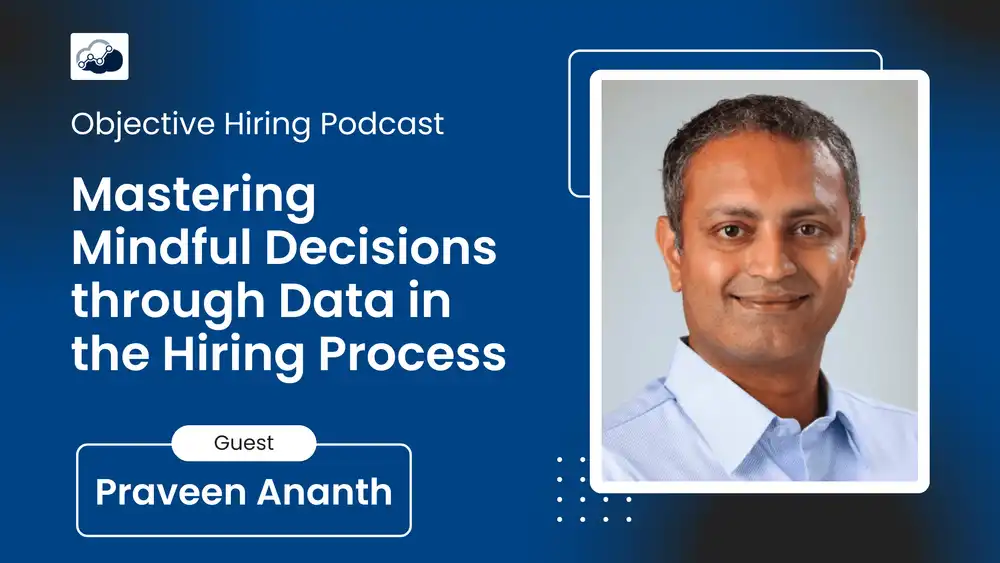Praveen Tomar on the Future of Data Roles: AI, Upskilling, and Ethical Tech Hiring

Guest: Praveen Tomar
Host: Tim Freestone
Podcast: Objective Hiring
What does the future hold for data professionals in the age of AI?
Praveen Tomar believes the role of data experts is shifting—and quickly. In this episode of Objective Hiring, he shares why today’s data analysts, engineers, and scientists must become fluent in AI, business communication, and ethical practices.
“Most AI engineers today were once data specialists. AI doesn’t exist without good data—and good data people.”
He describes a world where clean, structured data is the foundation of every AI initiative.
“Everyone wants GenAI. But my first question is always: do you even have clean data?”
Without structured inputs, even the most powerful models are ineffective. That’s why Praveen pushes his teams to invest in solid data pipelines and quality controls before any AI deployment.
But the pressure doesn’t stop at infrastructure. The human side of data is changing too.
“As a data specialist, there’s no escape. You must keep learning—Azure Synapse, AWS, Microsoft Fabric, AI tools. It’s mandatory.”
For Praveen, learning isn’t optional; it’s part of the job. He encourages his team to upskill continuously and attend conferences to see how others are solving real-world problems.
And then there’s the hiring side of the story.
“You can’t just hire someone who’s friendly and articulate but lacks core data skills. That’s how teams underperform.”
While soft skills matter, Praveen emphasises that technical fundamentals are still essential—and not easy to teach.
“It might take hours just to fix a logical bug in Python. That’s not something you can fake.”
He argues that great hires are those who show consistent learning and have the temperament to solve complex problems—even when it’s not glamorous.
“Coding isn’t fun. Most of the time, it’s frustrating. But if someone sticks with it, that tells you a lot.”
In terms of hiring fairly, he points to anonymised recruitment practices used in the UK civil service as a model to emulate.
“You don’t see names, birthdays, universities, or previous companies. Just skills and motivation.”
He explains how this removes unconscious bias and puts the focus where it belongs—on capability and intent.
This is where tools like Alooba come in. Alooba enables hiring teams to measure the skills that actually matter, using data—not assumptions.
“Structured hiring, skill tests, personal statements—those give you the full picture.”
Praveen is also a fan of pre-interview video submissions, where candidates explain how they’d solve real-world challenges.
“In two or three minutes, you can see how someone thinks, speaks, and whether they care about the job.”
The episode also touches on broader ethical considerations.
“If you use ChatGPT to write your personal statement, you might get the job—but you won’t be happy. You’re lying to yourself and the team.”
His take? Use AI tools to polish grammar—but keep your motivations honest.
“Your energy, your enthusiasm—those can’t be faked. Not in a video. Not in person.”
Praveen also advocates for informal chats and hiring webinars that let candidates explore teams before applying. This transparency helps both sides make better decisions.
“You don’t want to hire someone into a team they know nothing about. Give them a window in.”
In the end, this conversation is a reminder: AI might change tools, but people still drive impact. Hiring the right ones—with curiosity, skill, and intent—is more important than ever.